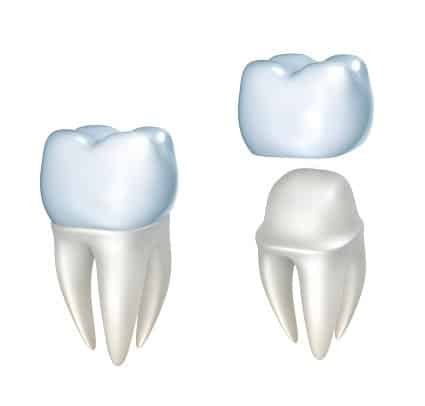
Are you thinking about dental crowns? When a tooth filling isn’t quite enough to restore the look and strength of a broken tooth, a crown may be the answer.
Crowns vs. Fillings: What to Know
A filling is appropriate when there’s minor damage to the tooth, such as from a single cavity that isn’t very deep. In the past, most fillings were made from dental amalgam, a “silvery” alloy. Now, porcelain or other materials approximate the look of tooth enamel.
A crown provides more strength and protection. It is a tooth-shaped implant that fully encapsulates a damaged tooth. This is the best way to ensure long-term stability of a severely damaged tooth, and can be a good idea in other situations:
- A crown can support a tooth with a large filling that needs additional reinforcement.
- It can hold a dental bridge in place in situations where multiple teeth need treatment.
- It covers any teeth with significant discoloration that can’t be whitened.
- It can cover an implant or simply be used to improve the shape of a tooth.
Although there are many kinds of crowns, all-ceramic or all-porcelain crowns provide the best color matching with existing teeth. You should discuss crown materials with a dentist, since some are stronger than others and may have different care requirements.
What to Expect from a Crown Treatment
Getting a crown usually requires two visits: The first is to examine the tooth, usually with an x-ray. Depending on decay and other factors, it might be necessary to do a cleaning or other restorative procedure first.
Afterwards, an impression of the tooth is made so a customized crown can be manufactured. In 2-3 weeks, the new crown will be ready. In the interim, most patients are fitted with a temporary crown. It’s important to have this replaced, since it isn’t as strong or durable as a permanent crown!
During the second visit, the permanent crown is checked for correct size, shape and color. If all is well, it is installed under local anesthesia or, if the patient prefers, dental sedation.
After that, the crown is permanent. Chipping, loosening and other complications are possible, but very rare when a crown has been made correctly. It’s important to continue regular dental maintenance and care.
Tribeca Dental Care is your source for dental crowns in NYC that will last. Contact us today to set your appointment!

